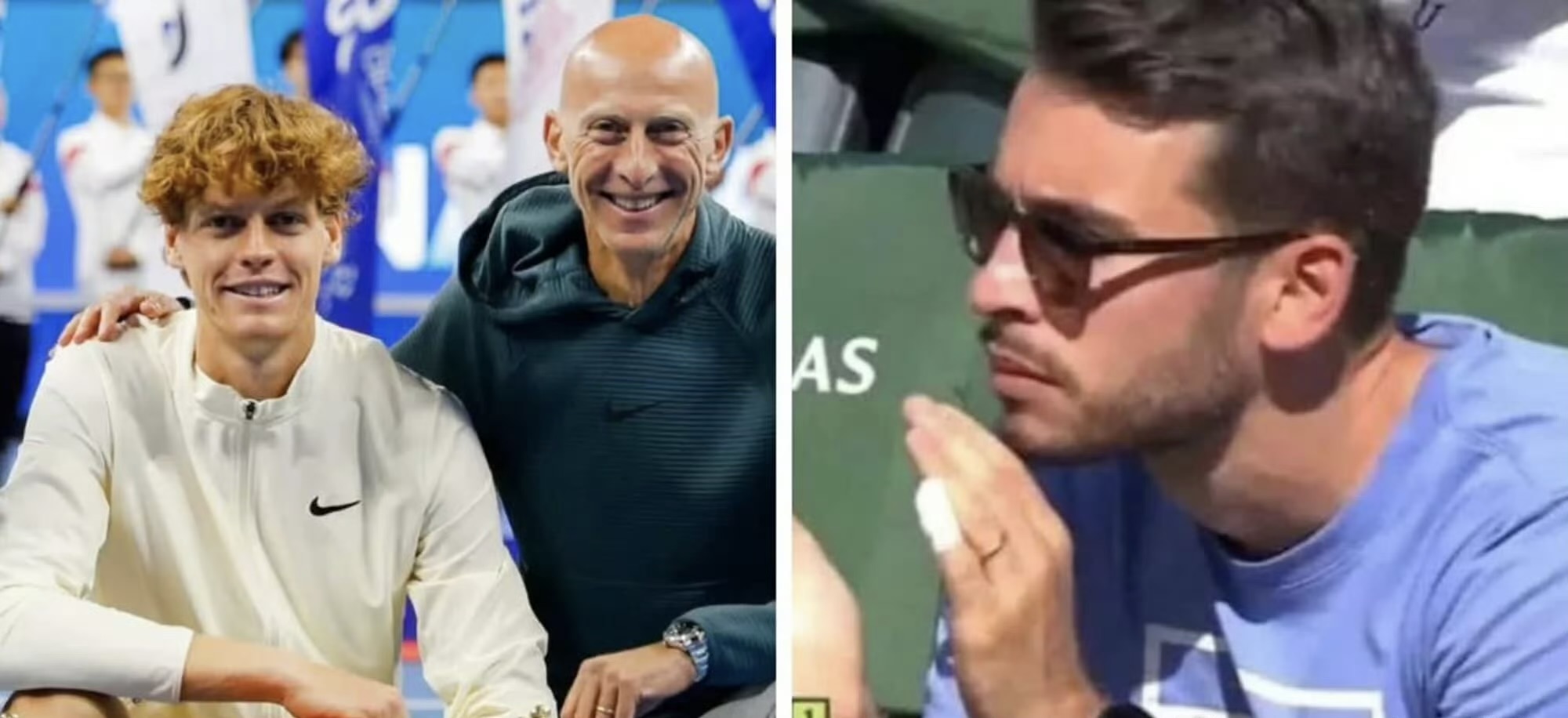Sinner's decision to rehire a performance coach involved in doping: When the moral boundaries of competitive sports are blurred by victory
The recent statement from the new Wimbledon champion, Sinner, sent shockwaves through the sports community as he decided to rehire Ferrara, a performance coach previously investigated for doping allegations. This decision immediately sparked public outrage, with some angrily condemning it as a desecration of sportsmanship, while others calmly analyzed it as a desperate move in the brutal competition of professional sports. In this controversy, Sinner is not just choosing a fitness coach; he is making a highly controversial decision on the balance between sports ethics and competitive results.

Ferrara is no ordinary coach. In 2021, he was investigated by Italian police for allegedly providing banned substances to athletes. Although he was ultimately not convicted, the shadow of suspicion still lingers. In Sinner's two doping cases, Ferrara was the one who brought the spray containing the banned substance "clenbuterol" to the U.S., while another involved party was the physiotherapist Nardi, who tested positive for Sinner after failing to wear gloves while using the spray.In the sports world, such a stain often signifies the end of a career. However, Sinner's team claims that Ferrara is "a crucial figure in Sinner's growth journey," and this public defense of a problematic coach exposes a troubling reality in modern professional sports: the glow of victory is enough to overshadow moral flaws, and the allure of results can rewrite a person's history.

The language used in Sinner's team's statement regarding "continuity in competition" and "performance in top events" is a textbook example of professional sports jargon. These cold, technical terms cleverly sidestep the core ethical issues, transforming a discussion that should be about sportsmanship into a mere topic of team optimization. The bureaucratic language of professional sports demonstrates its powerful ability to gloss over controversies, wrapping unacceptable actions in a veneer of rationalization, making the unacceptable appear justifiable. When performance becomes the ultimate pursuit, moral considerations naturally take a backseat.

The world of professional tennis is a jungle where the weak are devoured by the strong. Young players like Sinner face not only opponents across the net but also the brutal pressures of the entire system. The expectations of sponsors, the demands of fans, and the desire for self-actualization all coalesce into a simple and violent directive: win. In such an environment, morality often becomes a luxury. History has repeatedly shown that the tolerance for "problematic figures" in sports is proportional to the victories they bring. As long as Ferrara can help Sinner improve those crucial shots, past controversies will become irrelevant in the eyes of many.

Sinner's choice reflects a broader cultural malaise: the prevalence of moral relativism in sports. Under this logic, as long as one does not violate explicit rules, any behavior can be rationalized; as long as one is not convicted, any blemish should not affect career development. This mindset undermines the higher moral pursuits inherent in sportsmanship, reducing competitive sports to mere technical activities. When the younger generation of athletes witnesses their idols navigating moral gray areas without punishment, the essence of sports education becomes distorted.

Interestingly, Sinner's team chose to announce this decision at a crucial moment in preparation for the US Open series. This serves both as a test of external reactions and as a signal that they are ready to weather a potential media storm. Crisis management in professional sports has evolved into a refined art, and the team knows that as long as Sinner performs well on the court, today’s controversy will eventually fade into obscurity. Victory is the best bleach; it can wash away most moral doubts, which is an unspoken rule in the sports world.

In this controversy, the real loser may be the spirit of sportsmanship itself. When a highly talented young player openly embraces a controversial figure solely because the latter can help him win matches, the educational significance and moral values that sports embody are openly disregarded. Sinner's case is by no means an isolated incident; it is merely the latest chapter in the increasingly evident moral decline of professional sports. On this slippery slope, we have witnessed too many self-justifications of "as long as it's legal, it's reasonable" and too many instances of "everyone is doing it."

The essence of sports should be a noble expression of humanity's pursuit of excellence, not a utilitarian game of winning at all costs. Sinner's choice may grant him a competitive edge in the short term, but in the long run, what he loses may be more precious than what he gains. Once an athlete's integrity is compromised, no amount of glory can make up for it. When future tennis histories record Sinner's career, will people remember his championship titles or this moral compromise? The answer may depend on whether he realizes that true champions not only win on the court but also excel in character.(Source: Tennis Home, Author: Mei )







 Links
Links
 Contact
Contact
 App
App


